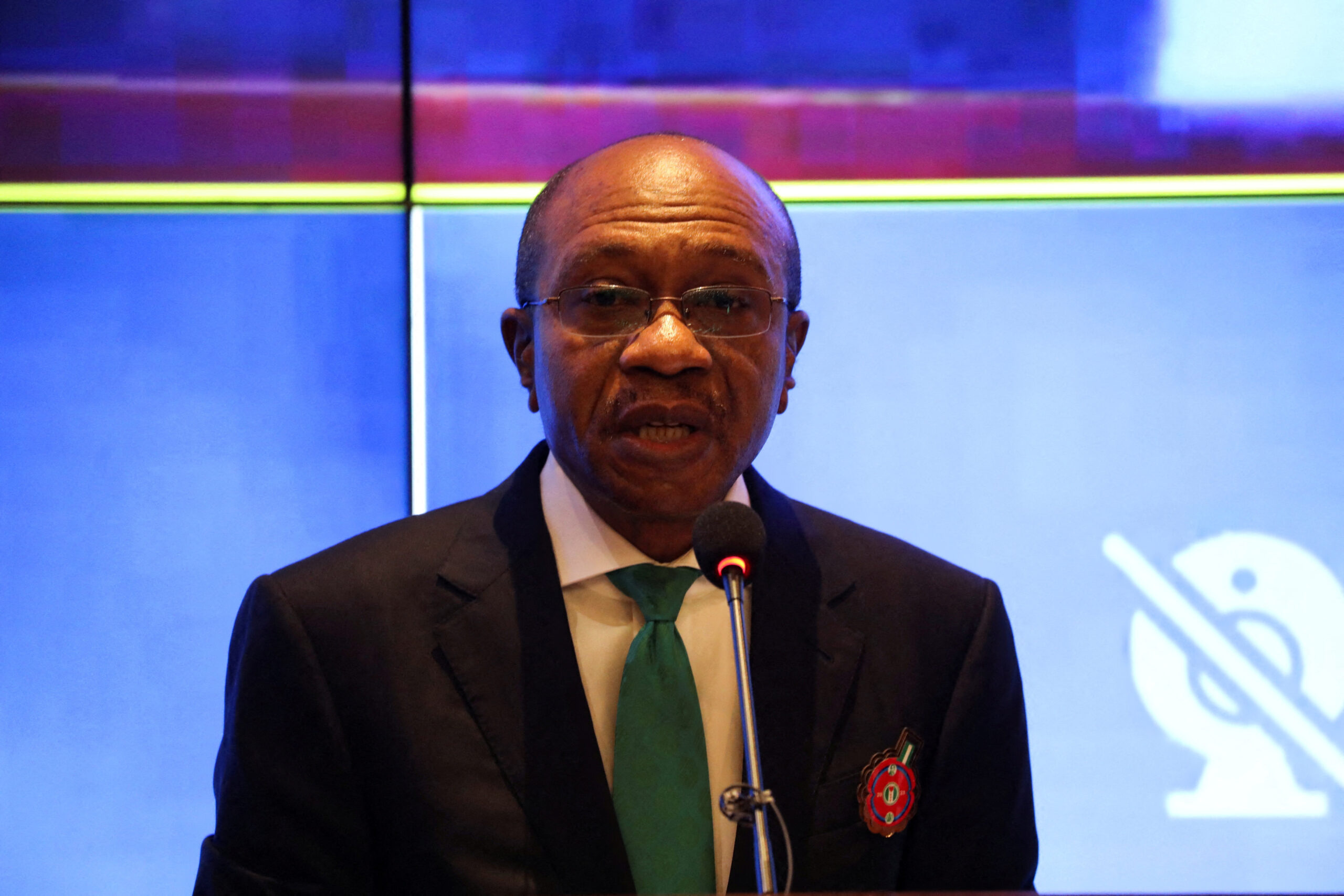By Felix Onuah
ABUJA (Reuters) – Nigeria’s President Bola Tinubu has suspended central bank Governor Godwin Emefiele with immediate effect, following an ongoing investigation of his office and planned reforms in the financial sector, the head of the government said on Friday.
Tinubu criticised Emefiele’s handling of the currency and monetary policy at his inauguration last week and called on the central bank to work towards a unified exchange rate.
Emefiele’s suspension comes after a meeting with Tinubu last week.
“President Bola Ahmed Tinubu has suspended the Central Bank Governor, Mr Godwin Emefiele, from office with immediate effect,” the government said in a statement.
READ MORE: Nigeria’s Buhari defends election outcome, economic record
“This is the sequel to the ongoing investigation of his office and the planned reforms in the financial sector of the economy.”
Emefiele has been directed to hand over operations to the deputy governor, who will act as the central bank governor pending the conclusion of the investigation and the reforms, the statement said.
Financial markets were closed when the news of Emefiele’s suspension was announced. Markets will open on Tuesday after a public holiday on Monday.
Nigeria is facing severe dollar shortages, forcing many citizens and businesses to seek foreign exchange on the black market, where its naira currency has progressively weakened.
READ MORE: Shell wins UK Supreme Court case on 2011 oil spill off the Nigerian coast
Former President Muhammadu Buhari, who was in power for eight years, had sought to keep the naira strong as a matter of national pride, but that became unsustainable during an oil price crash in 2016. To avoid a large devaluation, multiple exchange rates were introduced.
Emefiele has been selling dollars at various rates to individuals and businesses to manage the demand, mask pressure on the naira and conserve its dwindling reserves.
He has been adjusting the naira gradually on the official market to avoid a large devaluation. On Wednesday, the central bank allowed the naira to weaken by 2% on the official market to a record low.


